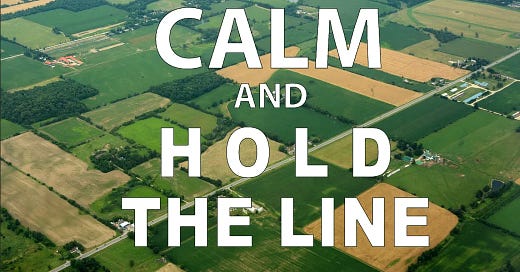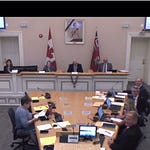PDF Download
Introduction to KICLEI
We have discovered that U.N. programs are adopted at the local level are entirely voluntary, emphasizing the freedom of choice for Canadian Municipal and First Nations Councils.
Many of these programs are funded by the United Nations affiliate ICLEI Canada and the Government of Canada and administrated through the Federation of Canadian Municipalities (FCM).
U.N. directive programs, if not carefully considered, may have significant adverse effects on mobility and property rights, energy security, small-town growth, and the urban crisis. They could also redirect public funds and assets to corporate and foreign investors under the guise of “saving the planet.” Additionally, these programs could augment the roles of local administrators and limit public feedback.
Therefore, we seek to educate communities and councils on the origins, aims, rationales and disadvantages of such programs and propose that Canadian Municipal and First Nations Councils withdraw from U.N. directive programs, such as the FCM-ICLEI Partners for Climate Protection Program (PCP).
The Agenda for the 21st Century - Implemented Through Canadian Municipalities
Sustainable development is a planning concept that restricts individual property rights and is therefore not aligned with the Canadian way of life.
During the Brundtland Commission, a conference held in Vancouver from May 31 to June 11, 1976, the United Nations laid out its official policy on land. The Preamble states that "land should not be treated as a regular asset that is controlled by individuals... Private land ownership… contributes to social injustice and public control of land use is indispensable.”
In 1990, the United Nations World Congress founded ICLEI, the International Council on Local Environmental Initiatives ICLEIs founding documents state, that local governments should restructure human society.
The same year the FCM began to participate in PrepCom, a Preparatory Committee to assisted in the development of the documents to be discussed and agreed upon at the United Nations Conference on Environment and Development (UNCED), Earth Summit in Rio De Janeiro, Brazil.
In 1992, Canada agreed to Agenda 21 at UNCED. In 1994, the Federation of Canadian Municipalities (FCM) sent a Municipal Primer on the United Nations Conference on Environment and Development to all Canadian Municipalities; “Promoting Sustainable Development Through Local Strategic Action.” The Municipal Primer is a blueprint for achieving “sustainable development.”
On page 9 of the Municipal Primer on UNCED, is a flow chart showing Agenda 21 would be implemented through Canadian Municipalities.
The chart shows that the means of implementation include promoting education, increasing public awareness, and training, providing information for decision-making, and the transfer of environmentally sound technology.
The FCM-ICLEI Partners for Climate Protection Program
In 1994, ICLEI Canada partnered with the Government of Canada to fund sustainable development programs to achieve Agenda 21, Agenda 2030, and net zero by 2050. These United Nations directives programs are administrated by the Federation of Canadian Municipalities (FCM) and are completely voluntary. It is important to note that the FCM and the Government of Canada take no responsibility for these programs such as the Partners for Climate Protection Program.
The Partners for Climate Protection Program (PCPP) is a program that has the participation of around 400 municipalities. The primary objective of the PCP program is to achieve net-zero emissions by the year 2050. This means that our economy should not emit any greenhouse gas emissions or should offset its emissions through carbon taxes and credits. The program follows a five-milestone framework that includes conducting an in-depth corporate and community GHG inventory and forecasting, setting a GHG reduction target of 45% by 2030 and 100% by 2050, developing a local action plan, implementing the plan, and monitoring progress while reporting results. You can learn more about the program by visiting https://www.pcp-ppc.ca/membership and https://www.pcp-ppc.ca/program.
The Supporting Rationale for U.N. Directive Programs
According to the Municipal Primer on UNCED, human activities have caused changes in the global climate, which are expected to continue, and sustainable development should not be postponed due to a lack of scientific certainty. Furthermore, the supporting rationale for the Partners of Climate Protection (PCP) program states that climate change increases extreme weather events and poses serious threats to our environment, health, jobs, and economy. Canada has committed to limiting global temperature increase below 2°C as per the Paris Climate Accord.
Climate Realism
At KICLEI, we recognize that most Canadians care deeply about our natural environment and are eager to protect it. Therefore, we are committed to addressing the supporting rationale of climate catastrophe in a calm and balanced manner. Our approach is to promote education and public awareness on climate realism, providing evidence of natural climate change factors, the benefits of CO2 as the basis of all life on earth, and supporting everything with basic facts and peer-reviewed studies.
Does Civic Engagement Work?
Starting June 26, 2023, delegations in Peterborough and surrounding townships led to nationwide awareness of the local implementation and disadvantages of U.N. directive programs. This grassroots movement led to the delay of a U.N.-driven Official Plan, serving as a powerful reminder that Canadians can effectively resist unwanted policies at a local level, instilling a sense of empowerment and agency.
“Local Action National Result” FCM Slogan
Our goal is to help safeguard the Canadian way of life, council's decision-making options and the publics interests against any adverse impacts of U.N. directive programs. To achieve this, KICLEI Coordinators and supporters are encouraged to Endorse the Mission, Join the Network, Share the Mission, Support the Mission, Learn More and Initiate Localized Community Action Plans and Committees.
Learn More at kiclei.ca
Timeline and Reference Section
1972 - Stockholm Conference, Founded the UN Environmental Programme (UNEP)
1976 – Brundtland Commission – UN Land Policy Articulated
1987 – “Our Common Future” – Maurice Strong defined sustainable development.
1990 - ICLEI Founded at U.N. World Congress
1992- Rio Declaration of Environment and Development
1992 - Statement of Principles on Forests
1992 – Convention on Biological Diversity
1992 – United Nations Framework Convention on Climate
1992 – Agenda 21 United Nations Conference on Environment & Development (UNCED)
1994 - Federation of Canadian Municipalities Municipal Primer on the United Nations Conference on Environment & Development
FCM-ICLEI Partners for Climate Protection Program (PCP)
PCP Council Resolution to Join
1996- ICLEI The Local Agenda 21 Planning Guide
2012 – ICLEI Global Report
















Share this post